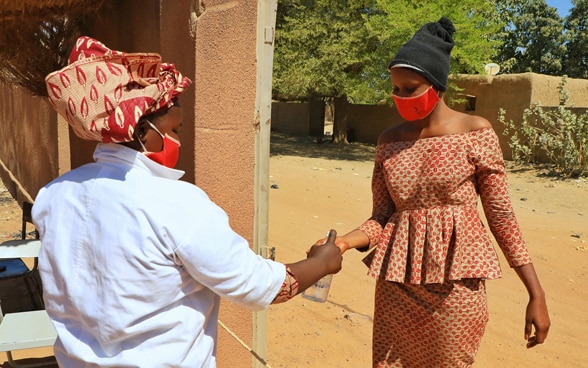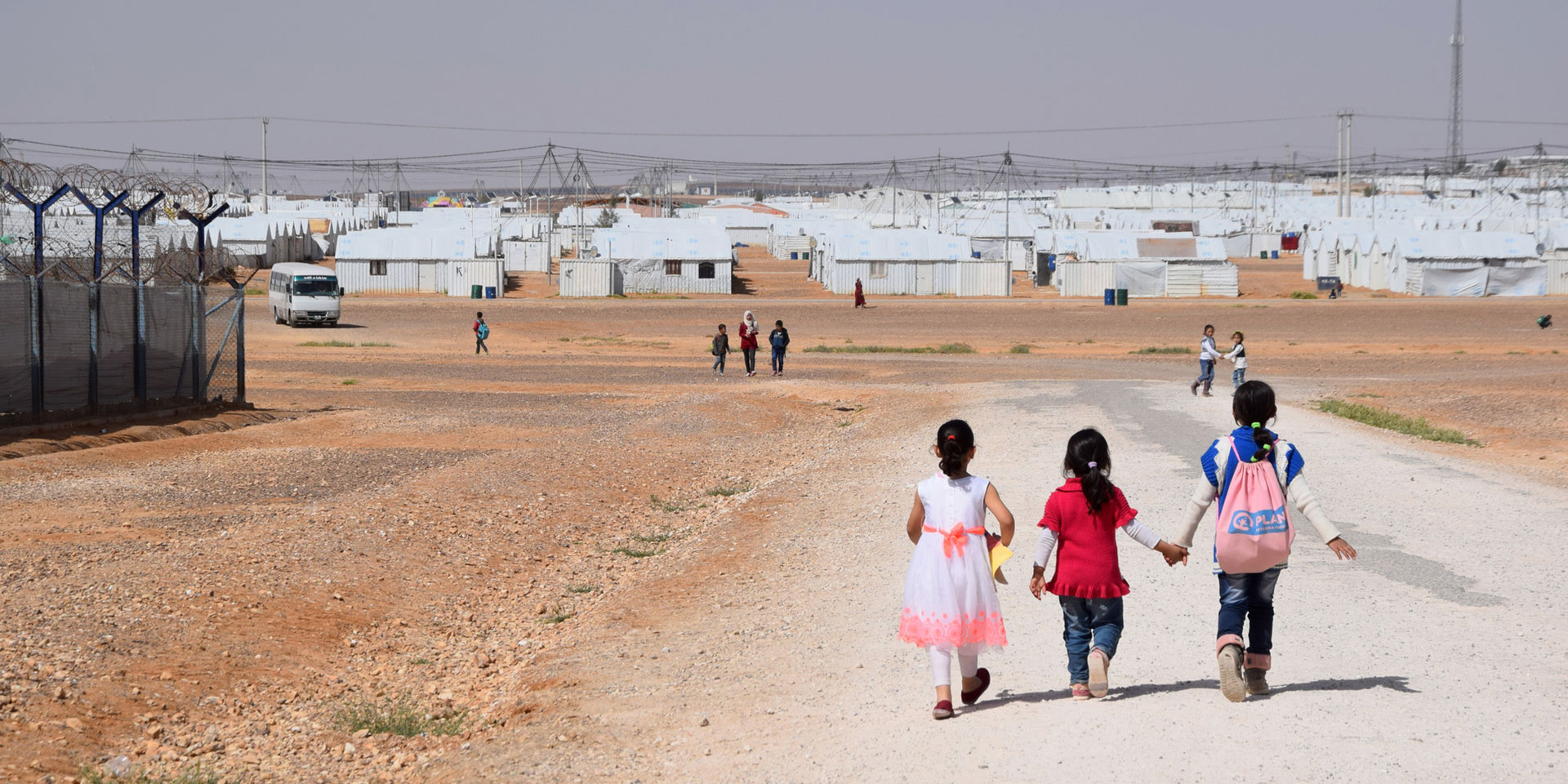Drought, COVID-19 and conflict in Afghanistan – Switzerland helps to create prospects
Afghanistan is suffering the consequences of over four decades of war. Particularly in such a fragile context, the combination of development cooperation and humanitarian aid can make huge differences for the local population, explains Patricia Danzi, Director General of the Swiss Agency for Development and Cooperation (SDC), who gained an insight into the challenges on the ground.
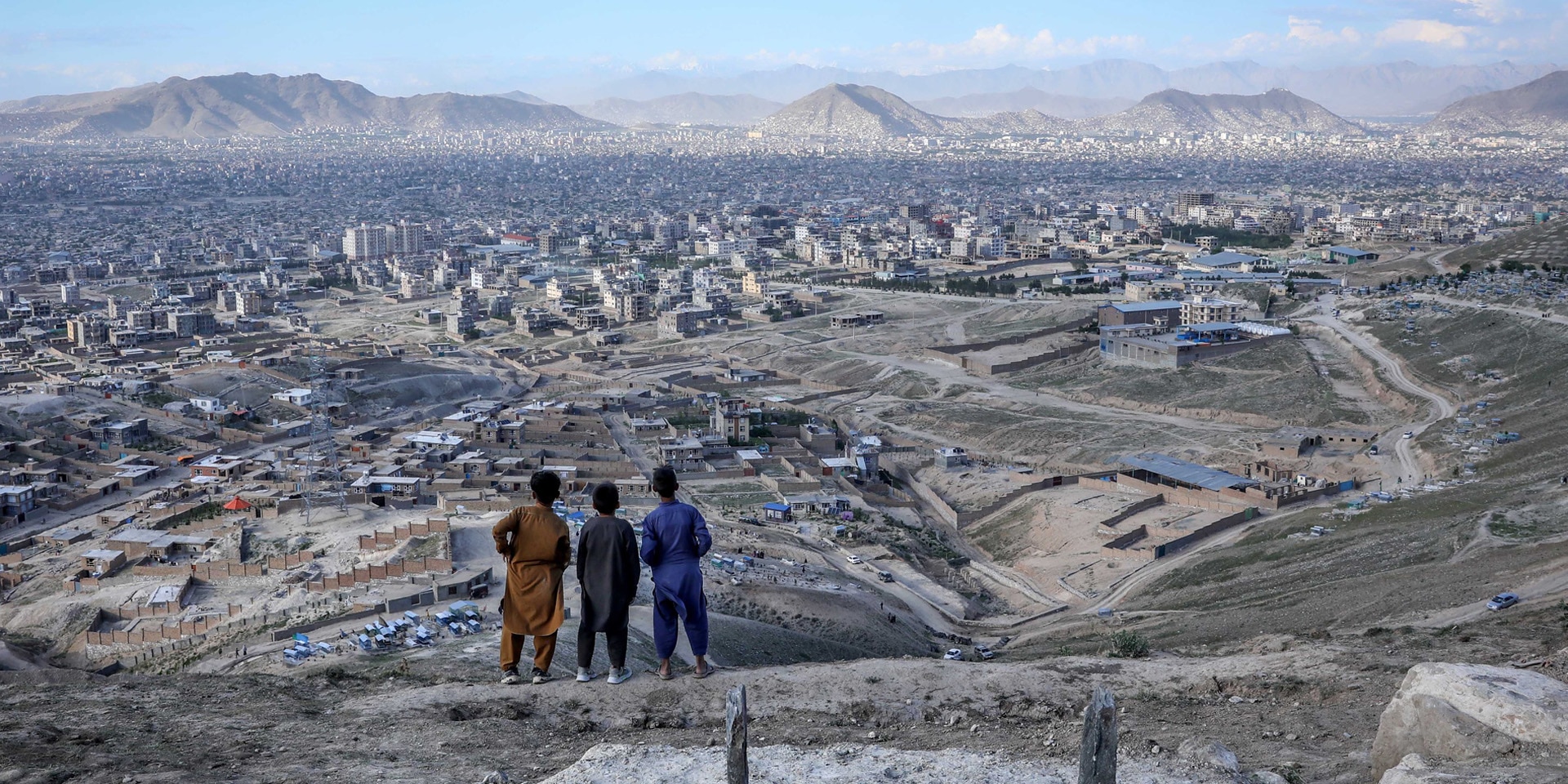
With its commitment to the rule of law, protection, food security and basic education, Switzerland is creating prospects for the people of Afghanistan. © Keystone
Afghanistan's population looks back on four terrible decades. Due to various conflicts since the 1980s, Afghanistan is one of the least socially and economically developed countries in the world today. Up to 90% of Afghanistan's population has to live on less than two US dollars a day. With the ongoing conflict between the Taliban and the Afghan government forces and the impact of the COVID-19 crisis and climate change, the outlook for the Afghanistan's population is extremely bleak. The prolonged droughts are jeopardising the food security of the over 30 million people living in the country. "Faced with this situation, the Afghan population needs future prospects, the hope of peace and partners, like Switzerland, committed for the long-term," remarked Danzi.
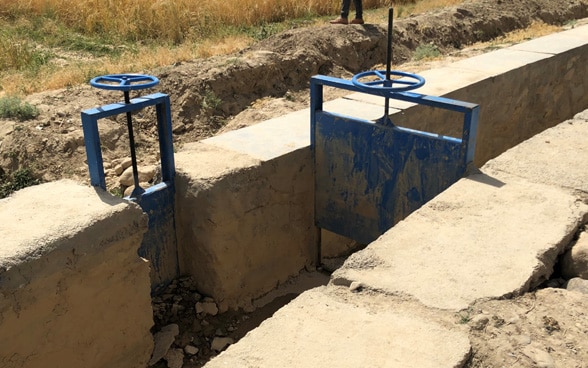
The SDC has been supporting the Afghan population since the 1990s through humanitarian efforts and a broad-based development programme. Switzerland has been represented with a cooperation office in Kabul since 2002, underlining its presence and commitment through all the crises and conflicts.
Five days in Afghanistan
During her five-day visit to Afghanistan in June 2021, SDC Director General Patricia Danzi visited a valley in Kabul province where the ground was too dry to grow food due to the periods of drought. Thanks to an irrigation canal built in this valley by the World Food Programme (WFP) with Swiss money, the ground has been made fertile again for farmers. The construction of the canal also provided internally displaced persons with paid work for several months.
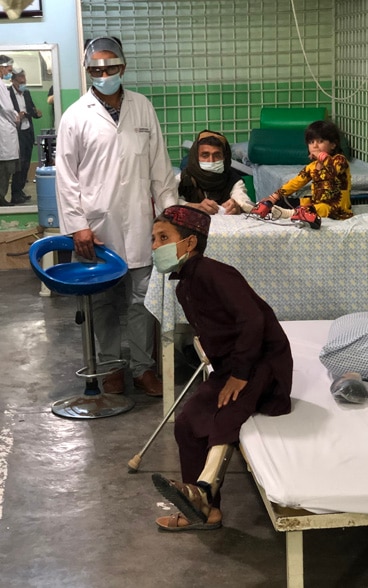
The war has nevertheless been the main factor in the suffering of the population for 40 years. This was illustrated up close by the SDC Director General's visit to a rehabilitation centre run by the International Committee of the Red Cross (ICRC) in Herat in western Afghanistan. Not only has the ICRC – with Swiss support – been providing prostheses and physiotherapy here for 30 years, it also promotes the social and economic integration of those affected. Around 250,000 people in the entire country have benefited from this programme so far.
At meetings with the Vice President Amrullah Saleh, the Minister of Refugees and Repatriation Noor Rahman Akhlaqi, the Finance Minister Khalid Payenda and representatives of NGOs, Patricia Danzi discussed the political situation and the Afghan population's changing needs. The representatives of the Afghan authorities but also the national and international partner NGOs underlined just how important Switzerland's presence is to ensuring effective development cooperation in Afghanistan to alleviate suffering and to protect human life.
The rule of law and protection of people in need
The SDC's efforts to ensure the rule of law and protection in Afghanistan focus on fundamental human rights. This primarily concerns improved access to legal services for women and men. Switzerland is also supporting institutional reforms of the Afghan judicial system. For example, it helped to establish courts in 16 provinces which specialise in cases of violence against women. Switzerland is providing the Afghanistan Independent Human Rights Commission (AIHRC) with financial, political and practical support.
At political level, Switzerland is working to ensure the protection and long-term reintegration of internally displaced persons and people returning from abroad as well as to improve access to humanitarian aid.
Agriculture and management of natural resources
Conflict, climate change and their consequences are having a negative impact on food security in Afghanistan. Switzerland is tackling this issue on two levels. Firstly, it is working with smallholders in remote and mountainous regions, such as the provinces of Daykundi, Paktia and Khost, to prepare them for the impact of natural hazards and climate change, such as flooding and drought, through the sustainable management of their resources. This helps smallholder farmers and their families to increase their production and prevent crop failures. Secondly, Swiss projects strengthen the public services of the Afghan state for smallholders at institutional level.
Basic education
Even before the COVID-19 pandemic, 3.7 million Afghan children had no access to school education. The already significant gaps in education are likely to widen further in future owing to school closures in 2020 to prevent the spread of coronavirus. Basic education is not just a key factor in the prosperity and future of children, but also in a state's economic and social development. This is why Switzerland is aiming to improve access to high-quality basic education for all in Afghanistan.
With its educational projects for children up to the age of 12, Switzerland is strengthening the institutional framework of the Afghan education system: in dialogue with the Afghan Ministry of Education, Switzerland is promoting safe learning environments. It is also endeavouring to ensure renewed access to education for children in former combat zones and is supporting Afghanistan with training and advisory services for teachers.
Why Switzerland also engages in fragile contexts
In a fragile context such as Afghanistan, Switzerland combines humanitarian efforts with long-term development cooperation. This approach means Switzerland contributes to helping the Afghan population short-term in their emergency situation while also establishing renewed trust in public institutions and creating future prospects through long-term commitment to good governance and education. This not only alleviates pressure on irregular migration, but also improves Afghanistan's prospects of developing at economic and social levels and becoming more crisis-resilient. Afghanistan is listed as one of the priority countries in the International Cooperation Strategy 2021–24.
A strategic compass for Switzerland's international cooperation
The visit by SDC Director General Patrizia Danzi to Afghanistan is part of the implementation of Switzerland's development cooperation goals. She places great emphasis on the stabilisation of fragile countries, such as Afghanistan, as this creates future prospects and alleviates poverty and suffering.
At the end of January 2020, after analysing the current state of the world and evaluating the trends that could shape the future, the Federal Council published its Foreign Policy Strategy 2020–23, setting out its overarching objectives.
Derived from the Foreign Policy Strategy, the International Cooperation Strategy 2021–24 is pursuing four objectives in four priority regions. With the focus on Eastern Europe, North Africa and the Middle East, sub-Saharan Africa and Central, South and South-East Asia, the strategy increases international cooperation's impact and efficiency. Its four equally important goals, which are set out below, contribute towards poverty reduction and the implementation of the 2030 Agenda:
- Creating decent jobs locally
- Combating climate change
- Reducing the causes of displacement and irregular migration
- Working to ensure the rule of law
The thematic strategies, such as the International Cooperation Strategy, supplement the geographical strategies, like the FDFA's Sub-Saharan Africa or MENA Strategy. They are aligned with one another, This ensures that Switzerland's foreign policy activities are implemented more effectively, avoids any overlaps and harnesses synergies between the various federal offices involved and external partners.
The interaction between strategies is important to ensure Switzerland implements its foreign policy in a coordinated way in all regions of the world and presents a coherent and unified image.

.jpg)
